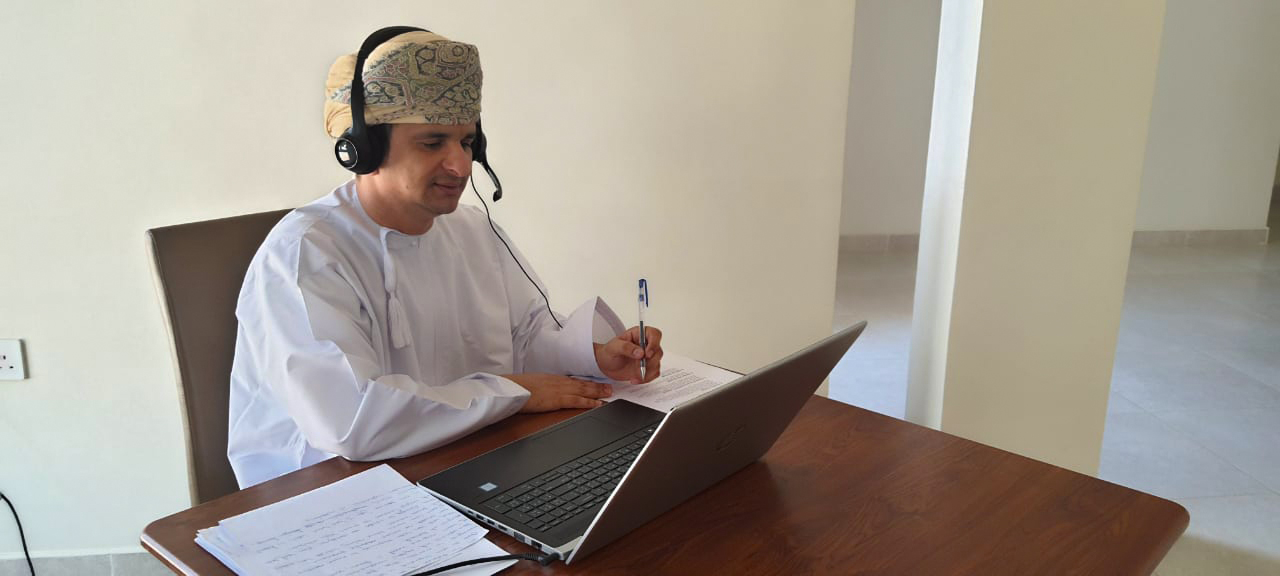

Muscat: With the Coronavirus pandemic showing no signs of slowing down, several international higher education institutions (HEIs) have announced plans to resume online classes for the fall semester.
A report titled ‘Lessons Learned: Higher Education’s Response to COVID-19’, by Dr Shoba Zachariah, CEO, Catalyst Solutions, examined the responses of nine HEIs including 5 universities and 4 colleges in the Sultanate to the pandemic.
According to Dr Zachariah, all HEIs in the survey were able to switch to online teaching quickly; some within a week and a few immediately.
The benefits as revealed by the survey included more opportunities for online student collaboration, more interaction by the more shy or reserved students, increased flexibility in scheduling classes and more teaching time to explore the curriculum in-depth.
A key worry for decision makers in education is whether students will remain engaged in the learning process.
The survey reveals that contrary to expectations, within 3 months, online learning has improved student autonomy and independent learning skills.
When it comes to student engagement, online learning can level the playing field for introverted or shy students who prefer to be quiet in face-to-face classrooms. Faculty members at Majan University College (MUC), Muscat, noticed that many of these students were more interactive in the online environment, adding comments and questions during online classes.
Students also reported that they had more time to study due to time saved from not commuting to or socialising on campus.
Dr Maka Kobeil, Dean of MUC, says it is very important for institutions to develop their own guiding principles and processes for online teaching which are informed by international best practice.
She notes that overreliance on lengthy online classes is not ideal for student engagement; rather designing asynchronous tasks and activities that students can do in their own time is key.
There is no doubt that faculty development is vital for engaging students effectively in online and blended environments.
This is a priority for all institutions, but in the current situation, faculty development has also to be carried out online.
Dr Abood al Sawafi, Vice-Chancellor, University of Buraimi, is ensuring that his teaching staff has access to professional development webinars on online and blended learning.
He notes that this is fundamental if any institution wants to comply with the Quality Assurance requirements of online learning. Recruiting more technologically literate staff and a holistic e-Learning plan are also key factors.
First year students may lack the interpersonal and self-management skills required for effective learning. These skills are largely developed through face-to-face interaction and support and are difficult to manage virtually without experience and tailored strategies in place.
“Strategies for creating online students’ communities and to support students can be very effective,” says Dr Ahmed al Balushi, Dean, College of Engineering, NUST.
According to him, one aspect where student learning is hampered in a purely online environment are practical skills where students need to conduct experiments in labs, use specialised equipment, and participate in teams requiring direct interaction.
Students are also deprived of on-the-job learning opportunities through industry placements due to the pandemic as noted by Dr Abdulkarim al Mughairy, Dean, Oman Tourism College.
A key factor in ensuring online student engagement is reliable Internet connectivity which can be problematic in some areas in the Sultanate.
Dr Nabil Sahli, Dean, Faculty of Engineering and Computer Science, GUTech, notes that if students lack good Internet connectivity, they will not be engaged with their learning.
He highlighted the need for special Internet packages for students and implementation of free access to edu.om domains for the next semester.
Philip Barber, Director of Quality Assurance, CBFS, says that as academics we tend to underestimate students’ abilities to adapt.
He emphasises that students are more adaptable than we give them credit for, and the autonomy required for online and blended learning is instrumental in developing lifelong learning skills.
Ironically, COVID-19 appears to have enabled students to become more autonomous learners, which is the most important goal of higher education.
Oman Observer is now on the WhatsApp channel. Click here



